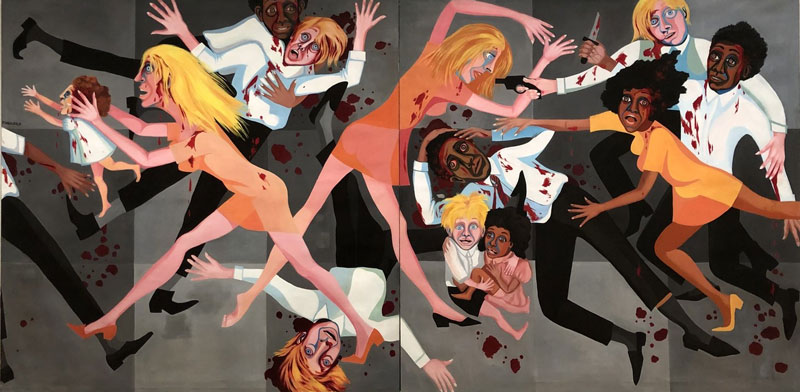One of the things that really surprise me about the film was people unknown of menstruation like it is not a normal among women. How people avoid it or do not mention it because it is a women thing, and how shy they seem about. Another thing that really stand out to me was the fact that they couldn’t pray or go to the temple while they had the menstrual period because their pray was not going to be heard. I know in the bible in the Old Testament it was a rule that the women couldn’t go to the temple while on it but in the New Testament I guess this rule doesn’t exist. It was really surprising how they even left school because of menstruation.
From the reading the anesthesiologist comment was painful and disrespectful. I believe they understand what being in labor means. It is not easy even less pain free. Also, the fact that right after giving birth she had to walk with an IV and push the baby car to a room it is really abusive. Yes, they are women that recover and get up the next day like nothing but who are the doctors to assume she was okay to do such a thing. Just like the nurse poked her and poked her unaware of how much pain she was causing. Why could not think about it the other way around and put their self in that situation.
The connection I can find between the reading and film is oppression. Oppression doesn’t only have to have gender but also it can have a race. The fact that in both the reading and film females are being oppress in such a natural thing like it is menstruation or giving birth is so surprising. I did not think African-American go through such thing I mean I did not think any female could of been in a situation like that, yes, I have seen it in other areas but not on labor. Same with the case of menstruation in India. Oppression doesn’t only come in physical form but most traumatic mentally, which is even more dangerous
The fact that women basically have to hide such a natural thing because they live in a patriarchy society is sad, also they have to look for ways to avoid marriage because they feel they don’t have place in society is really surprising. Marriage should be a happy and important decision making it because of love not because of cultural “rules”. The film was really great and being able to see the conditions, how they live honestly opens my understanding of the severity of the situation in the case of India, the condition in which they life is already oppressing them and in top being oppress for being woman’s is a lot to handle. The reading format was really great because by reading it you can maybe imagine what she went through but the use of image put us in her shoes and even make us think how was our labor (the ones that have kids already). This reading and film are perfect example of the different types of oppression: Personal, interpersonal, institutional and cultural.
